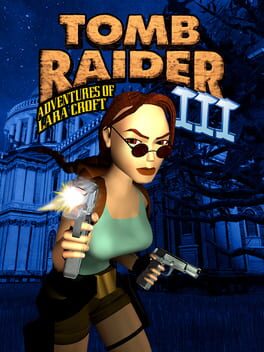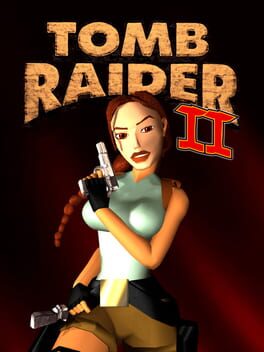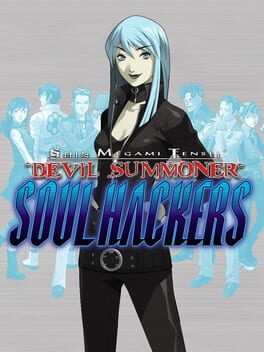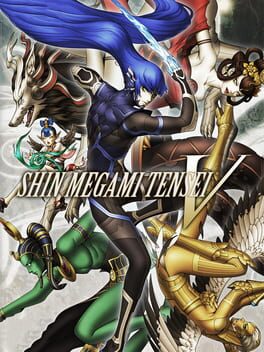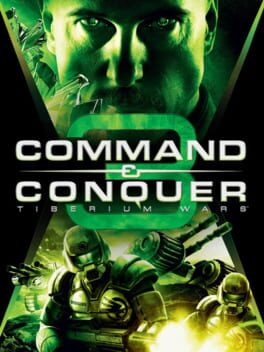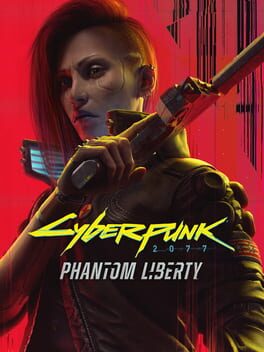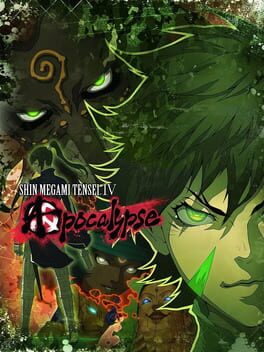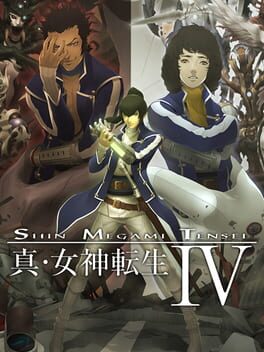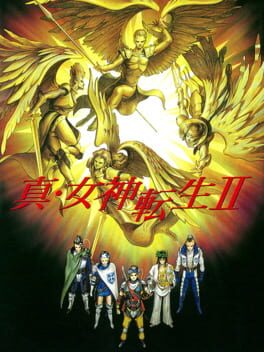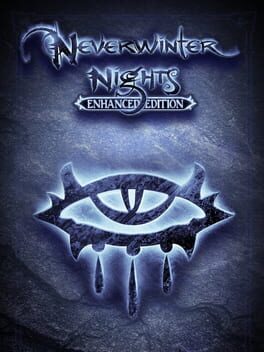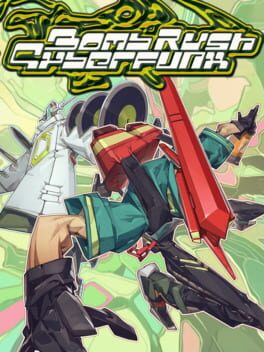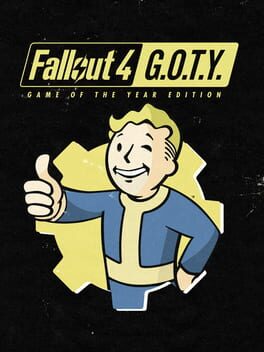zharod
The first Zelda game I've played and I really enjoyed the experience. However, I can't help but wonder how much better it could've been if it was more of a linear adventure as opposed to this huge sandbox. For that reason, I'm much more interested in the older entries than Tears of the Kingdom now...
It was foolish of me to expect decent writing from Square Enix in 2024.
I had a hunch they weren't gonna be able to land the plane that took off at the end of the first part — now I'm entirely convinced.
The game absolutely shines when it follows the original but it completely falls apart when new ideas are introduced. While I don't think the remake should be a 1-to-1 recreation, I also don't think the esoteric yet grounded themes of the original had to be turned into some convoluted, Kingdom Hearts adjacent mess.
Still, I admit there's a morbid curiosity to see where we're going next, but at this point only the wonderful cast of characters and their interactions can redeem the monstrosity the writers came up with.
I honestly had so many good things to say about this sequel but the ending completely ruined it for me and I admit I'm too angry and disappointed to come up with a semblance of a good review.
Maybe check back when I eventually replay this in preparation for part 3 but I doubt it'll grow on me the same way part 1 did.
I had a hunch they weren't gonna be able to land the plane that took off at the end of the first part — now I'm entirely convinced.
The game absolutely shines when it follows the original but it completely falls apart when new ideas are introduced. While I don't think the remake should be a 1-to-1 recreation, I also don't think the esoteric yet grounded themes of the original had to be turned into some convoluted, Kingdom Hearts adjacent mess.
Still, I admit there's a morbid curiosity to see where we're going next, but at this point only the wonderful cast of characters and their interactions can redeem the monstrosity the writers came up with.
I honestly had so many good things to say about this sequel but the ending completely ruined it for me and I admit I'm too angry and disappointed to come up with a semblance of a good review.
Maybe check back when I eventually replay this in preparation for part 3 but I doubt it'll grow on me the same way part 1 did.
I had a great time with this one but (so far) it really was the hardest. I feel really bad for the people who played on PS1 without infinite saves.
There are one or two times where the game disrespects its puzzle design philosphy in ways you're not expecting which may leave you without knowing what to do.
Don't get me wrong, the solutions to some of these puzzles are ingenious but sometimes you might not be compelled to try certain things because the series so far taught you not to stray too far from the formula.
I both appreciate and understand these decisions though, it was just extremely unexpected.
Also, there's something really off about the gamma levels /lighting. For the first time in the series I felt the need to adjust the gamma setting because otherwise I was burning through my flares like no tomorrow and they last only a couple of seconds this time around.
All in all a great game, I'm looking forward to its remastered version.
There are one or two times where the game disrespects its puzzle design philosphy in ways you're not expecting which may leave you without knowing what to do.
Don't get me wrong, the solutions to some of these puzzles are ingenious but sometimes you might not be compelled to try certain things because the series so far taught you not to stray too far from the formula.
I both appreciate and understand these decisions though, it was just extremely unexpected.
Also, there's something really off about the gamma levels /lighting. For the first time in the series I felt the need to adjust the gamma setting because otherwise I was burning through my flares like no tomorrow and they last only a couple of seconds this time around.
All in all a great game, I'm looking forward to its remastered version.
1997
2021
Look, this is a good fucking game ok?
I had really high expectations for this entry and despite them being completely destroyed a couple of hours into the game, I still think the number of positive aspects outweigh the number of negative ones, making it a very enjoyable experience.
The first thing that rubbed me the wrong way was the seemingly unnecessary transition into open world which almost completely removed the dungeon crawling aspect the series was long known for. In fact, there are only two dungeons in the game that exist solely to drive the plot forward and nothing else. Their design is nothing to write home about and they feature a ridiculously small demon variety so you're not even encouraged to engage with them either for recruiting or grinding purposes.
I actually did enjoy the first dungeon a lot more than the second one specifically because of the wind traps and the way they're used to traverse the map. The second one was basically braindead with enemies literally lining up in order to prevent you from advancing further and making the player look for an alternate route.
What absolutely took me by surprise was the fact that I was actually enjoying the open world. Running around in this game feels great and finding your way around is like a rewarding challenge in itself.
Special shout-out to the mediocre world map because it made it very difficult to plot a course just by looking at it. This encouraged me to really look at the world around me and appreciate the interesting worldbuilding tidbits given to me by talking with the demons in each map. When I would eventually find out how to get where I wanted to be, it felt rewarding because there was seemingly no hand-helding involved and I managed to get valuable wordbuilding info and loot along the way.
At the end of the day, the open world implementation wasn't so bad because you're really going through the different maps in a very linear fashion. That is, until the very last map where this gets thrown out of the window and you're kind of left wondering which area you should explore first while getting high level demons thrown in your face no matter where you go. Fortunately, in this game you can avoid combat very easily because enemies are visible overworld and you can just dodge them 90% of the time.
Regarding the quests, there really isn't much to say about them: they're the typical open-world fetch quests except in this game they're given to you by really charismatic and well-written demons which believe it or not actually alleviate the issue by a long shot! Also there are some more important (but still minor) questlines that are a little more involving and are actually required in order to unlock the game's "true ending" or "secret ending", however you want to call it.
The combat is absolutely amazing, I'm going as far as to say it's the best in the mainline series yet. I feel like magic and strength builds are finally equally viable and the new items that can be used as skill backups were very much welcome additions as they allow you to save up some skill slots.
However, I feel like there were weird and unexpected difficulty spikes. For example, I didn't need to grind at all up until high level 50s because the bosses and side-quests were enough to keep me up to speed. However, as soon as I hit the last map it was like getting a wake-up slap because the enemies were suddenly much more higher level than me, forcing me to grind a bit more than usual. This felt very weird, not because I was not expecting to grind in some way in an JRPG, but because that's not the direction the game was going for until that point. It felt like some chunk of the game was removed at the last minute and they forgot to scale the levels appropriately.
The weird level progression is also noticeable in some way if you're going for the true ending. In that route you're required to fight a boss before the typical alignment lock that's stronger than the final boss itself taking all the challenge away from an otherwise interesting fight.
On another aspect, I particularly appreciated the more coherent art style compared to the previous game. This was something that was very jarring in SMT IV and, although it was improved upon in SMT IV:A, I feel like they finally reached a comfortable middle ground between the older Kaneko designs and the new ones by Doi. That's not to say I'm fond of the new designs, which I still feel do not possess the same direction, vision, impact, and recognizability of Kazuma's work, but they are respectable takes nonetheless. I did, however, like the character designs very much and feel like they had the necessary elements to stand out on their own while being recognizable as SMT characters from a glance. Also a side note but I absolutely love the way their eyes are drawn, it just screams SMT to me.
I feel like from an artistical standpoint, the series is trying to find its place in the gaming world: it doesn't want to be Persona, but it is trying to be more marketable than the older SMT entries, and I can absolutely respect that.
Another aspect in which this is pretty noticeable to me is the soundtrack. I feel like this time around it is pretty hit or miss. There are definitely some bangers here and there, but most of the time it kind of blends into the background and becomes a bit forgettable.
There are however some interesting sound design decisions. For example I was especially shocked when I went into the final boss and the music was barely there. Really, it was basically ambient noises. But then, I was so surprised when I went for the true ending and found out there was a pretty neat final boss track afterall!
It's pretty clear that the soundtrack was well thought out and produced in a very thematically appropriate way, and maybe that's why it's not as memorable as, say, Nocturne's: because it doesn't try to get all up in your face at all times.
Even though the soundtrack is by far not my favorite, I still find myself enjoying it, if anything because it's just so unique and no other game out there has this type of sound, to the best of my knowledge. I think this is where SMT shines: in distancing itself from the very much saturated JRPG market.
With this much effort put into the game's design, it was pretty disappointing to me that the story and its pacing were very neglected, to the point where I forced myself not to think about it too much as to not ruin the fun I was having with the game. Even though the lore is there and is actually interesting if you care enough to dig into it, the game fails to tell a compelling story with such rich ingredients. To be clear, I was not expecting a good story-driven game out of SMT — it's pretty obvious they save those talents for their Persona money printing machine. I just think even a minimalistic story can be told in a much more meaningful and laser focused way. They even did it before. I mean, look at Nocturne!
Overall, this is definitely a good game and I think it definitely lives up to the "SMT legacy". I'm hopeful the next iteration builds upon this one and I'm excited to see what comes next.
I had really high expectations for this entry and despite them being completely destroyed a couple of hours into the game, I still think the number of positive aspects outweigh the number of negative ones, making it a very enjoyable experience.
The first thing that rubbed me the wrong way was the seemingly unnecessary transition into open world which almost completely removed the dungeon crawling aspect the series was long known for. In fact, there are only two dungeons in the game that exist solely to drive the plot forward and nothing else. Their design is nothing to write home about and they feature a ridiculously small demon variety so you're not even encouraged to engage with them either for recruiting or grinding purposes.
I actually did enjoy the first dungeon a lot more than the second one specifically because of the wind traps and the way they're used to traverse the map. The second one was basically braindead with enemies literally lining up in order to prevent you from advancing further and making the player look for an alternate route.
What absolutely took me by surprise was the fact that I was actually enjoying the open world. Running around in this game feels great and finding your way around is like a rewarding challenge in itself.
Special shout-out to the mediocre world map because it made it very difficult to plot a course just by looking at it. This encouraged me to really look at the world around me and appreciate the interesting worldbuilding tidbits given to me by talking with the demons in each map. When I would eventually find out how to get where I wanted to be, it felt rewarding because there was seemingly no hand-helding involved and I managed to get valuable wordbuilding info and loot along the way.
At the end of the day, the open world implementation wasn't so bad because you're really going through the different maps in a very linear fashion. That is, until the very last map where this gets thrown out of the window and you're kind of left wondering which area you should explore first while getting high level demons thrown in your face no matter where you go. Fortunately, in this game you can avoid combat very easily because enemies are visible overworld and you can just dodge them 90% of the time.
Regarding the quests, there really isn't much to say about them: they're the typical open-world fetch quests except in this game they're given to you by really charismatic and well-written demons which believe it or not actually alleviate the issue by a long shot! Also there are some more important (but still minor) questlines that are a little more involving and are actually required in order to unlock the game's "true ending" or "secret ending", however you want to call it.
The combat is absolutely amazing, I'm going as far as to say it's the best in the mainline series yet. I feel like magic and strength builds are finally equally viable and the new items that can be used as skill backups were very much welcome additions as they allow you to save up some skill slots.
However, I feel like there were weird and unexpected difficulty spikes. For example, I didn't need to grind at all up until high level 50s because the bosses and side-quests were enough to keep me up to speed. However, as soon as I hit the last map it was like getting a wake-up slap because the enemies were suddenly much more higher level than me, forcing me to grind a bit more than usual. This felt very weird, not because I was not expecting to grind in some way in an JRPG, but because that's not the direction the game was going for until that point. It felt like some chunk of the game was removed at the last minute and they forgot to scale the levels appropriately.
The weird level progression is also noticeable in some way if you're going for the true ending. In that route you're required to fight a boss before the typical alignment lock that's stronger than the final boss itself taking all the challenge away from an otherwise interesting fight.
On another aspect, I particularly appreciated the more coherent art style compared to the previous game. This was something that was very jarring in SMT IV and, although it was improved upon in SMT IV:A, I feel like they finally reached a comfortable middle ground between the older Kaneko designs and the new ones by Doi. That's not to say I'm fond of the new designs, which I still feel do not possess the same direction, vision, impact, and recognizability of Kazuma's work, but they are respectable takes nonetheless. I did, however, like the character designs very much and feel like they had the necessary elements to stand out on their own while being recognizable as SMT characters from a glance. Also a side note but I absolutely love the way their eyes are drawn, it just screams SMT to me.
I feel like from an artistical standpoint, the series is trying to find its place in the gaming world: it doesn't want to be Persona, but it is trying to be more marketable than the older SMT entries, and I can absolutely respect that.
Another aspect in which this is pretty noticeable to me is the soundtrack. I feel like this time around it is pretty hit or miss. There are definitely some bangers here and there, but most of the time it kind of blends into the background and becomes a bit forgettable.
There are however some interesting sound design decisions. For example I was especially shocked when I went into the final boss and the music was barely there. Really, it was basically ambient noises. But then, I was so surprised when I went for the true ending and found out there was a pretty neat final boss track afterall!
It's pretty clear that the soundtrack was well thought out and produced in a very thematically appropriate way, and maybe that's why it's not as memorable as, say, Nocturne's: because it doesn't try to get all up in your face at all times.
Even though the soundtrack is by far not my favorite, I still find myself enjoying it, if anything because it's just so unique and no other game out there has this type of sound, to the best of my knowledge. I think this is where SMT shines: in distancing itself from the very much saturated JRPG market.
With this much effort put into the game's design, it was pretty disappointing to me that the story and its pacing were very neglected, to the point where I forced myself not to think about it too much as to not ruin the fun I was having with the game. Even though the lore is there and is actually interesting if you care enough to dig into it, the game fails to tell a compelling story with such rich ingredients. To be clear, I was not expecting a good story-driven game out of SMT — it's pretty obvious they save those talents for their Persona money printing machine. I just think even a minimalistic story can be told in a much more meaningful and laser focused way. They even did it before. I mean, look at Nocturne!
Overall, this is definitely a good game and I think it definitely lives up to the "SMT legacy". I'm hopeful the next iteration builds upon this one and I'm excited to see what comes next.
It's not bad but it's not great either...
The campaigns don't have much closure and the Scrin one seemed very unnecessary.
There are some bullshit mechanics in play but you also get used to them in time... Also lots of micromanagement compared to previous titles.
The game was kicking me in the ass constantly and then I found out some official patch changed the economy for the main campaign unintentionally (it was supposed to be a multiplayer-only change). After installing a mod to fix this issue the game was more enjoyable.
The biggest flaw for me is the lack of a good soundtrack... Most of the time the game is silent and when you're in combat a minimalistic song plays here and there but this is nothing compared to the rich and immersive soundtrack the previous titles always had.
Frank Klepacki you are so missed...
The campaigns don't have much closure and the Scrin one seemed very unnecessary.
There are some bullshit mechanics in play but you also get used to them in time... Also lots of micromanagement compared to previous titles.
The game was kicking me in the ass constantly and then I found out some official patch changed the economy for the main campaign unintentionally (it was supposed to be a multiplayer-only change). After installing a mod to fix this issue the game was more enjoyable.
The biggest flaw for me is the lack of a good soundtrack... Most of the time the game is silent and when you're in combat a minimalistic song plays here and there but this is nothing compared to the rich and immersive soundtrack the previous titles always had.
Frank Klepacki you are so missed...
Well well well, see what happens when you strive for quality over quantity?
I thoroughly enjoyed my time with this expansion.
The characters and acting are both great. I was honestly afraid including Idris Elba would be a weak attempt at stunt casting to sell the DLC but I think he delivered.
I guess one of the issues that surfaced this time around is the sound mixing. It might be just me but the voice quality difference between Reed, Songbird, and Alex was jarring! Alex's voice especially sounded very muffled compared to the other characters and this was very distracting at times.
The plot was very engaging to me. I'm kind of a sucker for 007 type of stuff which this DLC was clearly inspired by to some degree so I was easy to please on that regard. Also, contrary to the base game, I quite enjoyed all of the four possible endings to this story. I think they each have their pros and cons and there was obviously no perfect solution in sight, and that's ok because they were sufficiently coherent.
I was also very impressed that the DLC managed to mesh pretty seamlessly with the base game. I was afraid Dogtown would be completely isolated from Night City and that you would have to go through a tedious process switching back and forth between base game and DLC — I couldn't have been more wrong!
Not only does the content fit perfectly geographically speaking, it encourages you to continue the (base game) main quest (or any other side activity) as you go through the plot by giving you some down time every now and then. Furthermore, some gigs that you start in Dogtown will have you travel outside of the territory which was also a nice touch.
Speaking of the territory, I think Dogtown's smaller scale did wonders for exploring. Because it's so compact and well crafted, there's always something interesting to see in each corner, be it a cool landmark or a random crate drop you can go ahead and klep.
All in all, I think the biggest problem with this piece of content is that it belongs and is dragged down by the base game and its inherent issues with RPG mechanics. One of the things that pissed me off a couple times was the forced combat sequences, but that's nothing new here and I've already went through that on my review of the base game.
However, despite a couple of sketchy decisions, I heavily recommend this DLC.
I thoroughly enjoyed my time with this expansion.
The characters and acting are both great. I was honestly afraid including Idris Elba would be a weak attempt at stunt casting to sell the DLC but I think he delivered.
I guess one of the issues that surfaced this time around is the sound mixing. It might be just me but the voice quality difference between Reed, Songbird, and Alex was jarring! Alex's voice especially sounded very muffled compared to the other characters and this was very distracting at times.
The plot was very engaging to me. I'm kind of a sucker for 007 type of stuff which this DLC was clearly inspired by to some degree so I was easy to please on that regard. Also, contrary to the base game, I quite enjoyed all of the four possible endings to this story. I think they each have their pros and cons and there was obviously no perfect solution in sight, and that's ok because they were sufficiently coherent.
I was also very impressed that the DLC managed to mesh pretty seamlessly with the base game. I was afraid Dogtown would be completely isolated from Night City and that you would have to go through a tedious process switching back and forth between base game and DLC — I couldn't have been more wrong!
Not only does the content fit perfectly geographically speaking, it encourages you to continue the (base game) main quest (or any other side activity) as you go through the plot by giving you some down time every now and then. Furthermore, some gigs that you start in Dogtown will have you travel outside of the territory which was also a nice touch.
Speaking of the territory, I think Dogtown's smaller scale did wonders for exploring. Because it's so compact and well crafted, there's always something interesting to see in each corner, be it a cool landmark or a random crate drop you can go ahead and klep.
All in all, I think the biggest problem with this piece of content is that it belongs and is dragged down by the base game and its inherent issues with RPG mechanics. One of the things that pissed me off a couple times was the forced combat sequences, but that's nothing new here and I've already went through that on my review of the base game.
However, despite a couple of sketchy decisions, I heavily recommend this DLC.
2020
This review contains spoilers
This one just doesn't know what it wants to be: it tried to be a tragedy, it tried to be an in-depth RPG, it tried to be an open-ended action game... and it largely failed all those targets.
Don't get me wrong, this game is a blast, you'll have a lot of fun playing it and you should definitely pick it up at some point. If only because of the stunning visuals, the entertaining action sequences, and a couple of well written and well acted characters. But that's mostly where it begins and ends.
Let's get this out of the way: this game is not an RPG. It is a borderlands-like shooter with some RPG elements. Sure, there are a couple of interesting builds you can create but your stats barely influence the way you interact with the characters and the world around you, at most you can open doors in different ways and unlock some conversation options but nothing actually important.
Case in point, if you're roleplaying as a stealth character, you're going to have a terrible time here because at times you'll get thrown into combat just because the game decides it makes sense from a narrative perspective and you're forced to submit. Also I'm not sure if this is a new change as of patch 2.0 but using quickhacks will cause enemies to trace you with little chance to fight back unless you have memory wipe or other preventive measures.
You can tell the world and the assets had a lot of love put into them but ultimately exploring the game nets you very little rewards aside from some generic encounters and gigs, which I think are actually fine and serve their purpose.
Driving in the game is horrible until you have enough money to buy high end cars that actually handle semi-decently. It's as if they were trying to go with GTA IV's approach to driving and botched it. What I mean by this is that the vehicles have weight to them and each handle very differently but the physics just dont make sense, let alone the awful collisions.
Despite these drawbacks the combat and overall gameplay feel very fluid and nice. I was a bit turned off by the first-person perspective but I quickly learned to like it because I saw how immersive it could be when paired with the amount of beautifully motion captured cutscenes.
I could've taken all of these flaws pretty well and look way past them if the narrative carried the game somehow. Unfortunately, the writing does not make up for it.
On the first act of the game, two very charismatic and seemly interesting characters who are very important to the protagonist's up-and-coming get discarded very early on without deserving an ounce of character development or proper backstory exposition.
Not long after, you get introduced to Johnny Silverhand, immediately sealing your fate in the story and annoyingly stealing the spotlight for the most of it. This also destroys a lot of the (minimal) roleplaying you could've been trying to act out ever since the irrelevant origin/introduction quests.
Along the way you get to meet and work with some very interesting characters like Panam, Judy, and River, with the latter having one of the best questlines in the entire game by the way, albeit very short.
Other than those you have Rogue and Kerry who only seem to have interest in you because of Johnny and nothing else, which I can obviously understand why, but it makes me wonder what would happen with them if you took Johnny out of the equation. Would you even get to meet them?
It doesn't matter anyway, the final act of the game comes around and, depending on your chosen ending, destroys more or less everything you've built along the way.
One could argue that The Devil and The Star endings are more or less coherent with the game you've been playing up to this point, but then you have stuff like The Sun in which the game shifts its tone so wildly it feels like you're playing a dream sequence.
This is the thing I hate about the endings: they completely ignore the established character personalities (and even V's personality for that matter) just to convey the idea that "there are no happy endings in Cyberpunk". If you really want to go with that angle, then you have to make sure you write endings that are in harmony with what you've been shown so far. Don't just force the player's hand into submitting to your own edgy vision of what the game should end like. The game constantly preaches to you that "there's nothing you could've done" when clearly there are a lot of options you could've taken at the end of the day.
I was hoping the solution to this false dilemma imposed by the game would be fixed in the new ending introduced in Phantom Liberty and unfortunately it was not. At face value, they gave the players the ending many people wanted, but sprinkled in some forced, unreasonable, illogical plot points just so they could once again paint this rainy cloud over the protagonist and check their "no happy endings" box during the writers meeting.
I feel like I'm rambling at this point so I'm gonna cut this off.
This is a good game, but don't get too attached to it or you'll begin to hate it for what it is and wonder what could've been.
No amount of patching will fix it, ever.
Don't get me wrong, this game is a blast, you'll have a lot of fun playing it and you should definitely pick it up at some point. If only because of the stunning visuals, the entertaining action sequences, and a couple of well written and well acted characters. But that's mostly where it begins and ends.
Let's get this out of the way: this game is not an RPG. It is a borderlands-like shooter with some RPG elements. Sure, there are a couple of interesting builds you can create but your stats barely influence the way you interact with the characters and the world around you, at most you can open doors in different ways and unlock some conversation options but nothing actually important.
Case in point, if you're roleplaying as a stealth character, you're going to have a terrible time here because at times you'll get thrown into combat just because the game decides it makes sense from a narrative perspective and you're forced to submit. Also I'm not sure if this is a new change as of patch 2.0 but using quickhacks will cause enemies to trace you with little chance to fight back unless you have memory wipe or other preventive measures.
You can tell the world and the assets had a lot of love put into them but ultimately exploring the game nets you very little rewards aside from some generic encounters and gigs, which I think are actually fine and serve their purpose.
Driving in the game is horrible until you have enough money to buy high end cars that actually handle semi-decently. It's as if they were trying to go with GTA IV's approach to driving and botched it. What I mean by this is that the vehicles have weight to them and each handle very differently but the physics just dont make sense, let alone the awful collisions.
Despite these drawbacks the combat and overall gameplay feel very fluid and nice. I was a bit turned off by the first-person perspective but I quickly learned to like it because I saw how immersive it could be when paired with the amount of beautifully motion captured cutscenes.
I could've taken all of these flaws pretty well and look way past them if the narrative carried the game somehow. Unfortunately, the writing does not make up for it.
On the first act of the game, two very charismatic and seemly interesting characters who are very important to the protagonist's up-and-coming get discarded very early on without deserving an ounce of character development or proper backstory exposition.
Not long after, you get introduced to Johnny Silverhand, immediately sealing your fate in the story and annoyingly stealing the spotlight for the most of it. This also destroys a lot of the (minimal) roleplaying you could've been trying to act out ever since the irrelevant origin/introduction quests.
Along the way you get to meet and work with some very interesting characters like Panam, Judy, and River, with the latter having one of the best questlines in the entire game by the way, albeit very short.
Other than those you have Rogue and Kerry who only seem to have interest in you because of Johnny and nothing else, which I can obviously understand why, but it makes me wonder what would happen with them if you took Johnny out of the equation. Would you even get to meet them?
It doesn't matter anyway, the final act of the game comes around and, depending on your chosen ending, destroys more or less everything you've built along the way.
One could argue that The Devil and The Star endings are more or less coherent with the game you've been playing up to this point, but then you have stuff like The Sun in which the game shifts its tone so wildly it feels like you're playing a dream sequence.
This is the thing I hate about the endings: they completely ignore the established character personalities (and even V's personality for that matter) just to convey the idea that "there are no happy endings in Cyberpunk". If you really want to go with that angle, then you have to make sure you write endings that are in harmony with what you've been shown so far. Don't just force the player's hand into submitting to your own edgy vision of what the game should end like. The game constantly preaches to you that "there's nothing you could've done" when clearly there are a lot of options you could've taken at the end of the day.
I was hoping the solution to this false dilemma imposed by the game would be fixed in the new ending introduced in Phantom Liberty and unfortunately it was not. At face value, they gave the players the ending many people wanted, but sprinkled in some forced, unreasonable, illogical plot points just so they could once again paint this rainy cloud over the protagonist and check their "no happy endings" box during the writers meeting.
I feel like I'm rambling at this point so I'm gonna cut this off.
This is a good game, but don't get too attached to it or you'll begin to hate it for what it is and wonder what could've been.
No amount of patching will fix it, ever.
With how many times this references SMT2 I just wish they'd remake that game instead. Every bad thing you've heard about this game is true, but it's not all terrible.
The story was a major step back from SMTIV in my opinion mostly because of the juveline cast, their uninteresting spats, and the tired power of friendship trope.
Combat wise, this is a peak in the series (matched only by SMTV) in terms of balancing and strategizing. However I don't understand why they made autobattle slower than in SMTIV? This is extremely important because you'll get a lot of trash mobs you need to burn through, even though they're not nearly as annoying as in the previous game.
Walking around in this game is a joy: you don't have much guesswork to do, the world map is very easy to read, and you're not constantly getting swarmed with random encounters. In fact, I think the best feature of the game is the amount of quality of life changes they introduced such as the quest markers and the removal of the need to activate a demon hunting challenge quest before taking it on.
All in all, I would say this game is the Final Fantasy X-2 of the SMT series, but I actually like that game and I can't say the same about this one.
I definitely will not revisit this and to me the story ended with SMTIV.
The story was a major step back from SMTIV in my opinion mostly because of the juveline cast, their uninteresting spats, and the tired power of friendship trope.
Combat wise, this is a peak in the series (matched only by SMTV) in terms of balancing and strategizing. However I don't understand why they made autobattle slower than in SMTIV? This is extremely important because you'll get a lot of trash mobs you need to burn through, even though they're not nearly as annoying as in the previous game.
Walking around in this game is a joy: you don't have much guesswork to do, the world map is very easy to read, and you're not constantly getting swarmed with random encounters. In fact, I think the best feature of the game is the amount of quality of life changes they introduced such as the quest markers and the removal of the need to activate a demon hunting challenge quest before taking it on.
All in all, I would say this game is the Final Fantasy X-2 of the SMT series, but I actually like that game and I can't say the same about this one.
I definitely will not revisit this and to me the story ended with SMTIV.
This entry is a return to the form established in the first two entries in the series with a modern twist.
The introduction of more fleshed-out characters was well executed and the story is interesting with a very decent pacing this time around. Also not as much guesswork involved as in the last few games.
The combat is great, the music is stellar as always, but I was very disappointed with the inconsistent art style here. I don't think the new demon designs are good. They're not memorable, they're obviously well thought-out in terms of symbolism, but they just don't mesh with the rest of the old designs and the overall look and feel of the game.
Also, why the hell are archangel battles locked behind some pretty shitty DLC which doesn't even add that much lore into the game to make it worthwhile? Why were their battles excluded from the main plot? Just some overall weird monetisation decisions here.
Lastly, not to be that guy, but even though I love this old-school sprite based representation during conversations and combat, I think the game deserved more fleshed out visuals on a bigger screen, especially coming after Nocturne.
Had my fun with this game but it's definitely not my favorite. Don't think I'll be revisiting anytime soon unless for some reason ATLUS decides to port/remaster it.
The introduction of more fleshed-out characters was well executed and the story is interesting with a very decent pacing this time around. Also not as much guesswork involved as in the last few games.
The combat is great, the music is stellar as always, but I was very disappointed with the inconsistent art style here. I don't think the new demon designs are good. They're not memorable, they're obviously well thought-out in terms of symbolism, but they just don't mesh with the rest of the old designs and the overall look and feel of the game.
Also, why the hell are archangel battles locked behind some pretty shitty DLC which doesn't even add that much lore into the game to make it worthwhile? Why were their battles excluded from the main plot? Just some overall weird monetisation decisions here.
Lastly, not to be that guy, but even though I love this old-school sprite based representation during conversations and combat, I think the game deserved more fleshed out visuals on a bigger screen, especially coming after Nocturne.
Had my fun with this game but it's definitely not my favorite. Don't think I'll be revisiting anytime soon unless for some reason ATLUS decides to port/remaster it.
An overall improvement over the first game but still a flawed experience.
The narrative has enough plot twists and interesting characters to keep you going but it's ultimately dragged down by terrible and sometimes nonsensical backtracking segments that stretch out an already long game. Furthermore, even though initially you're able to find your way around easily, it eventually devolves into the same guesswork the first game put you through.
Fortunately, this time around you have a Fortune Teller guiding you in case you get lost as well as the usual Bar conversations. However, if you don't want to add even more backtracking by going to these places, your best bet is to grab a guide.
My absolute favorite thing about this game is the atmosphere and the art direction. Tokyo Millenium's high-tech aesthetic mixed in with traditional religious imagery is a very interesting combo that creates a vibe unmatched within the series and even outside of the series. This is of course enhanced by the soundtrack which is not as energetic as in the first game but still serves its purpose extremely well by going in a more experimental/ambience direction, so to speak.
This is definitely a must-play but it's hard to recommend it knowing how much of a drag in can be. Hopefully one day we get this game translated on the PSX so more people can enjoy it while benefitting from the faster pace of that version.
The narrative has enough plot twists and interesting characters to keep you going but it's ultimately dragged down by terrible and sometimes nonsensical backtracking segments that stretch out an already long game. Furthermore, even though initially you're able to find your way around easily, it eventually devolves into the same guesswork the first game put you through.
Fortunately, this time around you have a Fortune Teller guiding you in case you get lost as well as the usual Bar conversations. However, if you don't want to add even more backtracking by going to these places, your best bet is to grab a guide.
My absolute favorite thing about this game is the atmosphere and the art direction. Tokyo Millenium's high-tech aesthetic mixed in with traditional religious imagery is a very interesting combo that creates a vibe unmatched within the series and even outside of the series. This is of course enhanced by the soundtrack which is not as energetic as in the first game but still serves its purpose extremely well by going in a more experimental/ambience direction, so to speak.
This is definitely a must-play but it's hard to recommend it knowing how much of a drag in can be. Hopefully one day we get this game translated on the PSX so more people can enjoy it while benefitting from the faster pace of that version.
This game was as fun as it was frustrating.
It's very obvious that this game's main selling point is the DnD framework it provides along with the toolkit for player generated persistent worlds — and I'm ok with that.
The main campaign was very mediocre but I went into the game with this in mind so I was actually surprised to see it was not as bad as many people made it out to be.
The game shines the most in the side-story told in SoU + HotU in which you have more interesting characters and a better story with some fun little plot twists here and there.
The game is brutal though and some bosses will just wipe the floor with you when you're least expecting. I started the game on normal but I very soon realized I had to switch to easy.
Furthermore, the biggest annoyance to me are the henchmen and their AI. They went from being batshit crazy in the main campaign to being borderline useless on the expansion packs. I'd say 90% of my time in battle would be me forcing my companions to do something while they stared at a wall for multiple turns and I was getting smacked to death!
However I have to say that if you're an experienced DnD player you're going to have a much better time than I did for sure so I'm not the one to talk about difficulty.
All in all, it's a solid game but I don't think I'll ever touch it again.
It's very obvious that this game's main selling point is the DnD framework it provides along with the toolkit for player generated persistent worlds — and I'm ok with that.
The main campaign was very mediocre but I went into the game with this in mind so I was actually surprised to see it was not as bad as many people made it out to be.
The game shines the most in the side-story told in SoU + HotU in which you have more interesting characters and a better story with some fun little plot twists here and there.
The game is brutal though and some bosses will just wipe the floor with you when you're least expecting. I started the game on normal but I very soon realized I had to switch to easy.
Furthermore, the biggest annoyance to me are the henchmen and their AI. They went from being batshit crazy in the main campaign to being borderline useless on the expansion packs. I'd say 90% of my time in battle would be me forcing my companions to do something while they stared at a wall for multiple turns and I was getting smacked to death!
However I have to say that if you're an experienced DnD player you're going to have a much better time than I did for sure so I'm not the one to talk about difficulty.
All in all, it's a solid game but I don't think I'll ever touch it again.
2023
Had a blast playing this game. It starts off a bit slow but once you get used to the controls and you get access to more complex maps to explore, it really starts to shine!
I guess one thing I can complain about is the combat because it seemed a bit jank and unnecessary but on the other hand the boss battles reminded me of Sonic Adventure 2 for some reason, which gave me a bit of nostalgia.
I also think the tricks and the scoring system could be a bit better. Doing the same moves over and over gets a bit old, I guess this could've been improved by including directional inputs for different tricks for example.
The soundtrack is great, the story is short and sweet, I definitely recommend this game especially if you like Jet Set Radio although the current price point is a bit steep.
I guess one thing I can complain about is the combat because it seemed a bit jank and unnecessary but on the other hand the boss battles reminded me of Sonic Adventure 2 for some reason, which gave me a bit of nostalgia.
I also think the tricks and the scoring system could be a bit better. Doing the same moves over and over gets a bit old, I guess this could've been improved by including directional inputs for different tricks for example.
The soundtrack is great, the story is short and sweet, I definitely recommend this game especially if you like Jet Set Radio although the current price point is a bit steep.
The gameplay loop in this one is extremely fun and feels the most rewarding out of all the games in the series. However, it's hard to look past the extremely lacking RPG elements and poor writing, especially coming from games like Fallout 2 and New Vegas.
The Far Harbor DLC was a pleasant surprise and I heavily recommend it, but then Nuka World came and forced your hand into being an evil character with no other valid approach to conflict resolution other than basically not playing the DLC.
Still I will definitely revisit at some point.
The Far Harbor DLC was a pleasant surprise and I heavily recommend it, but then Nuka World came and forced your hand into being an evil character with no other valid approach to conflict resolution other than basically not playing the DLC.
Still I will definitely revisit at some point.


